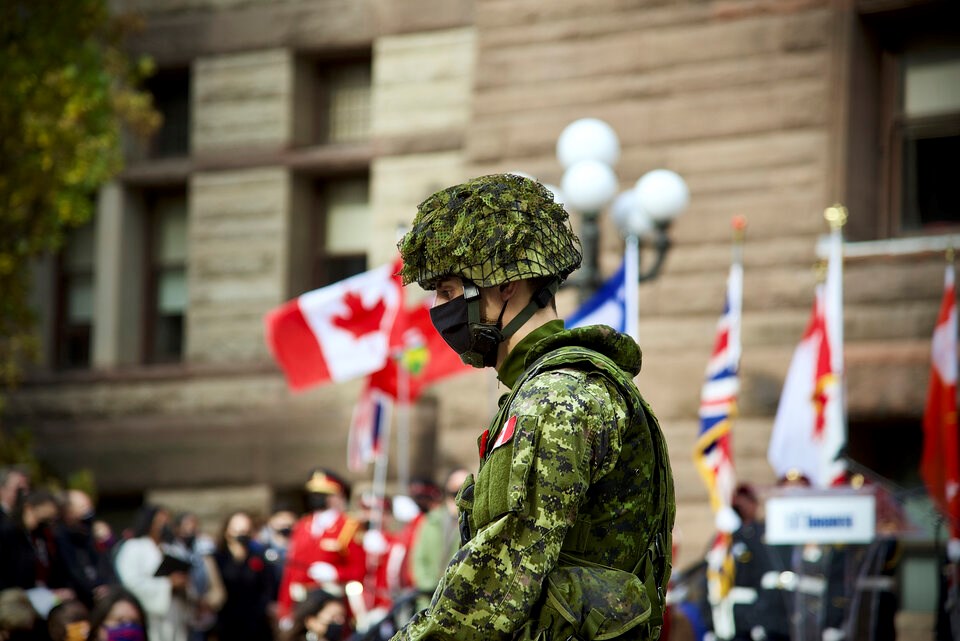A federal lawsuit challenging vaccine mandates initiated by the Canadian Armed Forces (CAF) during the COVID-19 pandemic has been thrown out by a judge presiding over the case.
The legal action sought $1 million in damages for each of the 330 plaintiffs. Together, they claimed the 2021 vaccine mandates violated their rights under the Canadian Charter of Rights and Freedoms.
In 2021, a series of directives required all CAF members to be fully vaccinated against COVID-19. Exemptions were provided to individuals if the vaccines impinged on religious beliefs, if they were medically inadvisable, or if they were prohibited in some other way under the Canadian Human Rights Act.
“Failure to comply with the directives could result in CAF members facing administrative and remedial measures, including release from the CAF,” wrote Associate Judge Catherine Coughlan in her Nov. 13 ruling.
Defendants in the case included several of the country’s highest-ranking generals and admirals, the Surgeon General, and the former Minister and Deputy Minister of National Defence, among others.
Canada submits motion to throw out case
In addition to the $1 million in damages per plaintiff, the initial June 2023 lawsuit sought declarations of “unlawful acts” and “breach of public trust,” as well as payments of $350,000 for failing to comply with various statutes, regulations and administrative policies.
Coughlan found that the hundreds of plaintiffs in the case had considerably different personal circumstances — not all received the vaccine, while only about 120 were still in service. The rest either left voluntarily or were discharged, wrote the judge.
On July 12, 2024, lawyers for the government of Canada filed a motion to strike the case without an option to amend the lawsuit. They claimed the case consisted of “bald allegations unsupported by facts” and that it failed to connect the allegations with the named plaintiffs.
The motion also alleged the lawsuit used “vexatious language;” made unsupported allegations against the defendants; and failed to offer sufficient facts supporting a breach of Charter rights.
Punishment targeted 'Pansexual Pagan;' led to forced winter weather exposure, claim plaintiffs
Coughlan wrote that while most of the plaintiffs were denied religious accommodation, none of them identified a “specific religious belief or practice in which they sincerely believe.”
Only one plaintiff, Stephen Troy Chledowski, alluded to a specific belief when he applied for religious accommodation as a “Pansexual Pagan.”
Many of the allegations against the armed forces hinged on Section 7 of the Charter, which protects life, liberty and the security of person. In one case, plaintiff Frederic Villeneuve‑Normand alleged he suffered psychological and physical harms after he was “forced to be outside in severe winter conditions without shelter or adequate care for three consecutive months in the winter of 2021-2022.”
Coughlan said the plaintiffs attempted to suggest this was some form of punishment for failing to be vaccinated, but that there were no facts to support the allegation.
In an alleged breach of Charter Section 8 — which protects an individual’s right to be secure against unreasonable search and seizure — the plaintiffs said vaccination information was stored on an unsecured network. But again, no facts were presented to support the claim, wrote the judge.
Coughlan said a similar lack of facts failed to support a claim that another plaintiff was forced to work from home after she didn’t get vaccinated.
Vexatious language and 'unfocussed assertions'
Coughlan wrote that the plaintiffs’ pleading was “replete with vexatious language.”
In one example, the plaintiffs describe COVID-19 vaccines as “experimental gene therapy” and “biologics” without backing up why the labels might be accurate. In other parts of their pleading, the plaintiffs make bad faith assertion that vaccine directives “promoted the fraudulent use of the biologics” and were “criminal in nature.”
“These statements are bald allegations with no material facts pled in support,” wrote the judge in her ruling.
At a Sept. 19 hearing in Edmonton, Coughlan said lawyers for the plaintiffs argued that the lawsuit was really about the “larger issue of abuse of authority within the CAF,” and that the vaccine directives were “merely a springboard into the litigation.”
The judge ruled that “such broad and unfocussed assertions” do not warrant the federal court’s intrusion on a grievance system already set up for members of the Canadian Armed Forces.
Coughlan ruled the lawsuit should be thrown out in its entirety for failure to disclose a reasonable cause of action, failure to plead material facts and the use of vexatious language.
After losing their case, the plaintiffs were ordered to jointly pay Canada $5,040 in legal fees.


